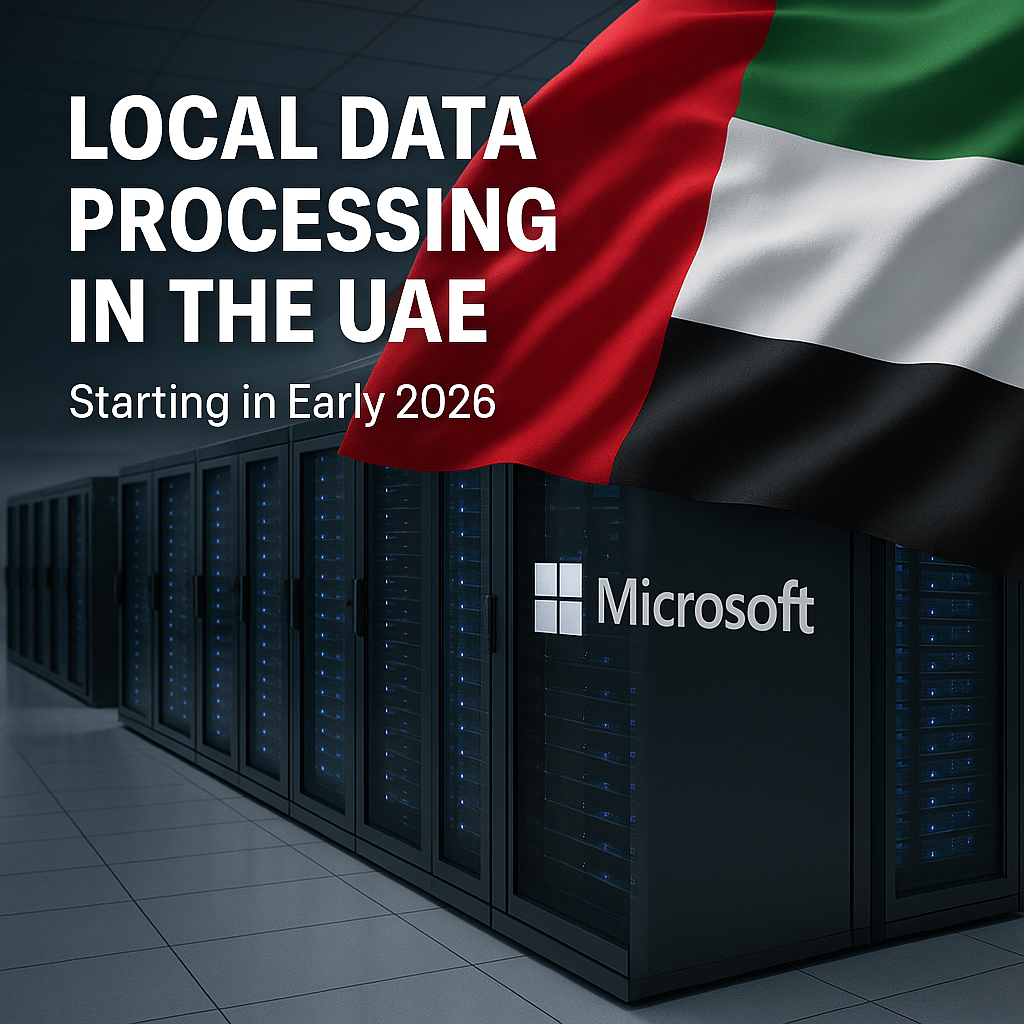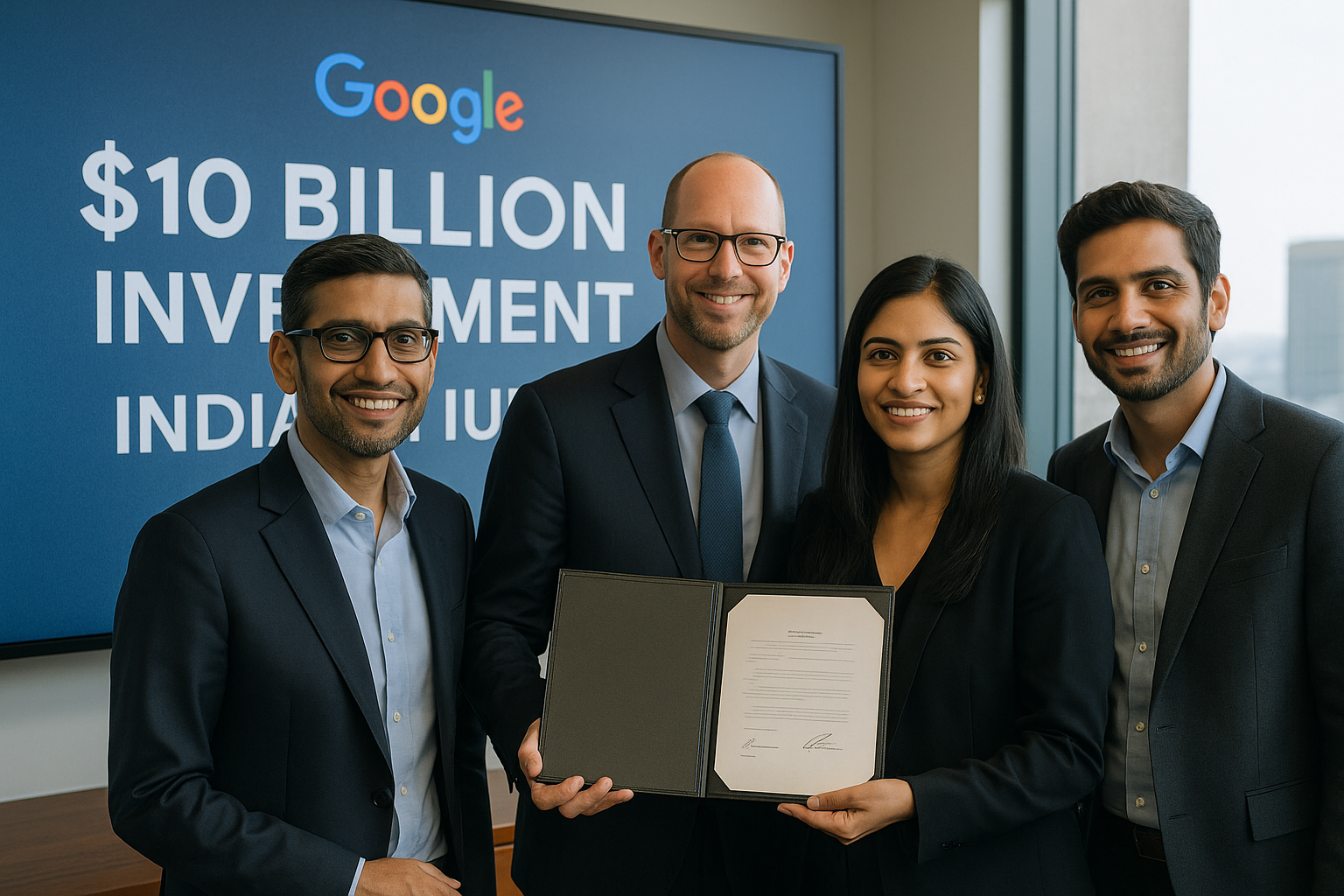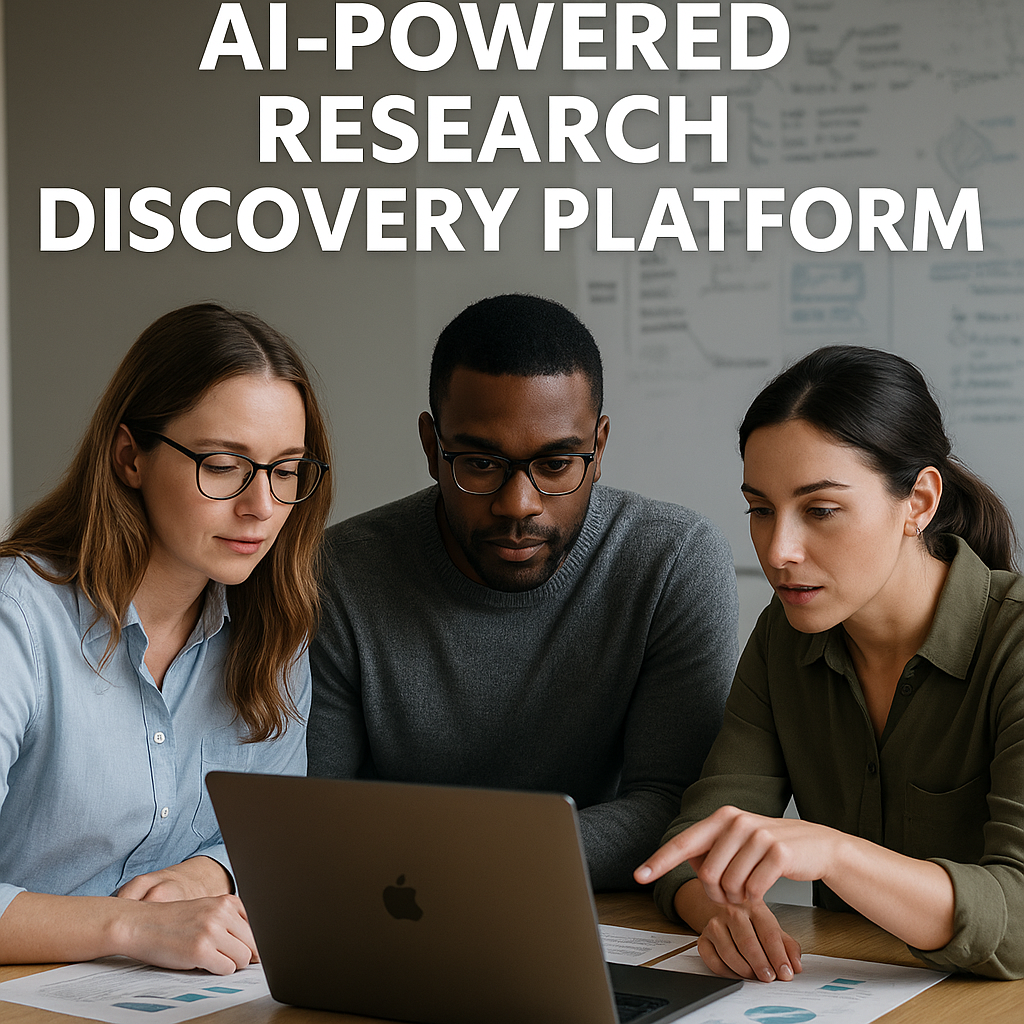AI in October 2025: Microsoft UAE, Google India AI Hub, and GenAI Regulation: AI News 14.Oct 2025

As AI adoption accelerates, balancing rapid scaling with responsible governance is crucial for enterprises and policymakers alike. Stay informed about the latest infrastructure localization and domain-specific platforms to capitalize on AI's potential across sectors like science and finance. Prioritize establishing ethical guidelines to ensure AI is developed safely and fairly, mitigating risks associated with bias and misuse.
Microsoft's In-Country Copilot Deployment in the UAE
As the AI landscape rapidly evolves, major players are making strategic moves to establish their presence in key global markets. One such move is Microsoft's plan to deploy its Microsoft Copilot in the United Arab Emirates with in-country data processing.
Local Data Processing in the UAE
Starting in early 2026, Microsoft will process Microsoft Copilot data locally within the UAE. This means that interactions with Copilot, the AI assistant designed to boost productivity across Microsoft 365 applications, will be hosted and processed within the country's borders. To facilitate this, Microsoft is leveraging its new data centers in Dubai and Abu Dhabi, ensuring that UAE-based Copilot users experience faster and more secure interactions. These data centers will act as the foundation for building trusted AI infrastructure in the UAE.

Addressing Regulatory and Sovereignty Concerns
This decision is a direct response to the growing importance of regulatory compliance and data sovereignty. Governments worldwide, including the UAE, are increasingly focused on ensuring that data generated within their jurisdictions is stored and processed locally. Microsoft's in-country deployment addresses these concerns head-on, demonstrating a commitment to respecting the UAE's data governance policies. The move ensures [UAE data sovereignty for AI], which is critical for building trust and fostering innovation within the region.
Meeting Latency Requirements for National AI Strategies
Beyond compliance, local data processing also addresses the critical issue of latency. For governments and organizations pursuing ambitious national AI strategies, minimizing latency is essential for ensuring optimal performance and responsiveness. By hosting [Microsoft UAE Copilot data residency] locally, Microsoft is significantly reducing the time it takes for data to travel between users and its AI systems, resulting in a smoother and more efficient user experience. This is particularly important for real-time applications and services that rely on rapid data processing.
Hyperscalers Adapting to Jurisdictional Needs
Microsoft's move in the UAE exemplifies a broader trend among hyperscale cloud providers. As AI becomes increasingly integral to national economies and strategic initiatives, hyperscalers are tailoring their deployments to meet specific jurisdictional requirements. This includes investing in local data centers, adhering to local data protection laws, and offering customized AI solutions that align with national priorities. The launch of the [Microsoft Dubai data center] and the [Microsoft Abu Dhabi data center] are testaments to this commitment.
By prioritizing local data processing and compliance, Microsoft is positioning itself as a trusted partner in the UAE's AI journey, paving the way for further innovation and collaboration. This strategic move underscores the importance of adapting AI deployments to meet the unique needs and priorities of individual nations.
Google's $10 Billion Investment in India AI Hub
In a move signaling its commitment to the burgeoning Indian AI market, Google has announced a staggering $10 billion investment in the country, marking its largest ever outlay in South Asia. This investment is poised to significantly bolster India's AI infrastructure and further intensify the already fierce competition among cloud giants vying for dominance in the region. This news arrives amidst our continuing coverage of AI News, where we strive to keep you informed of the latest developments.
Building the Foundation: Data Centers and AI Hub

At the heart of Google's ambitious plan is the construction of new data centers and a cutting-edge AI hub in Andhra Pradesh. This strategic move will provide the compute power necessary to support the surging AI workloads anticipated in India. The official Memorandum of Understanding (MoU) signing is scheduled for October 15 in Visakhapatnam, solidifying Google's partnership with the state and its commitment to driving technological innovation.
This isn't just about building infrastructure; it's about anchoring significant compute capacity in a critical emerging market. India represents a massive opportunity for AI adoption across various sectors, from healthcare and education to finance and agriculture. By establishing a strong presence with robust infrastructure, Google is positioning itself to capitalize on this growth and become a key player in India's AI revolution.
Meeting the Demand for Low-Latency AI
The investment also underscores the growing demand for low-latency AI services in India. As AI applications become more sophisticated and data-intensive, proximity to compute resources becomes paramount. By locating data centers and an AI hub within India, Google can significantly reduce latency and improve the performance of AI-powered applications for Indian users. This is particularly crucial for real-time applications such as fraud detection, natural language processing, and computer vision. Consider for instance, image generation; Indian users could potentially leverage tools such as Freepik AI Image Generator, an AI-powered tool which helps to create unique images. Google's move is a strategic response to this increasing need for speed and responsiveness in the AI landscape.
Google's $10 billion investment in India signifies a major step towards democratizing AI access and fostering innovation within the country. It also serves as a clear signal that the global AI race is intensifying, with major players vying for dominance in key markets like India.
Ultimately, this massive investment signifies Google's long-term vision for India as a major AI hub and reinforces the importance of infrastructure in enabling the widespread adoption of AI technologies. As competition heats up, we can expect further investments and innovations from other tech giants in the race to capture the Indian AI market.
Wiley's AI-Powered Research Discovery Platform
Imagine a world where scientific breakthroughs happen not in years, but in months, thanks to the power of AI—that's the promise of Wiley's new AI-powered research discovery platform. Wiley, a major player in scientific publishing, is stepping into the AI arena with a dedicated platform designed to revolutionize how researchers conduct their work. This platform aims to automate some of the most time-consuming and laborious aspects of scientific research, from literature review to hypothesis generation and even data analysis.
Streamlining the Research Process
The core mission of Wiley's platform is to significantly shorten the time-to-insight for researchers. Traditionally, scientists spend countless hours sifting through mountains of research papers, manually extracting data, and trying to piece together connections. The AI platform automates these tasks, providing researchers with a powerful suite of tools that can:
- Automate Literature Review: The AI can quickly scan and summarize thousands of relevant articles, identifying key findings and trends. This saves researchers valuable time and ensures they don't miss important information. This could be a game changer compared to old methods, especially when time is of the essence.
- Facilitate Hypothesis Generation: By analyzing existing data and research, the AI can help researchers formulate new hypotheses and identify potential areas for investigation. It's like having an AI brainstorming partner that can suggest novel research directions.
- Enhance Data Analysis: The platform provides AI-driven tools for analyzing complex datasets, identifying patterns, and drawing meaningful conclusions. This can help researchers uncover insights that might otherwise be missed through traditional statistical methods.
Empowering Researchers Across Disciplines
Wiley's platform isn't limited to a specific field; it's designed to be a versatile tool for researchers across various disciplines, from medicine and biology to chemistry and engineering. The platform offers domain-specific AI tools tailored to the unique needs of each field. These specialized tools empower researchers to leverage AI in ways that are directly relevant to their work, improving accuracy and effectiveness. This cross-disciplinary approach ensures that a wide range of scientific communities can benefit from the platform's capabilities.
Accelerating Scientific Breakthroughs

By reducing manual overhead and accelerating the research process, Wiley's AI platform has the potential to dramatically accelerate the pace of scientific discovery.
The platform empowers researchers to focus on the more creative and strategic aspects of their work, such as designing experiments, interpreting results, and collaborating with colleagues. Think of it like this: instead of spending hours on tedious tasks, scientists can spend more time thinking deeply about their research questions and developing innovative solutions. It also will accelerate AI-powered SEO, hopefully leading to more visibility in research. By providing researchers with the tools they need to work more efficiently and effectively, Wiley is helping to unlock new possibilities and accelerate the advancement of knowledge. As AI continues to evolve, expect more platforms like this to emerge, further transforming the landscape of scientific research. Make sure to read AI News for the latest innovations.
Financial Regulators Race to Govern Generative AI Risks
The world of finance is on high alert as financial regulators worldwide scramble to get ahead of the curve and govern the burgeoning risks associated with generative AI. It's no longer a question of if AI will impact the financial sector, but how to manage its pervasive influence before it's too late.
Banks' GenAI Adoption: A Double-Edged Sword
The Financial Stability Board (FSB) has issued a stark warning regarding the rapid adoption of generative AI by banks, highlighting potential threats to financial stability. While GenAI promises unprecedented efficiency and innovation, it also introduces a Pandora's Box of risks that must be carefully navigated. Banks are eager to implement tools like Salesforce Platform, which provides AI-powered CRM solutions, or Hubspot, offering AI driven marketing automation, but with adoption comes risk.
Heightened Risks: Fraud, Disinformation, and Operational Vulnerabilities
At the forefront of these concerns are heightened risks of fraud and disinformation. Imagine sophisticated phishing attacks crafted by AI, nearly indistinguishable from legitimate communications, or AI-generated fake news capable of destabilizing markets with lightning speed. Operational risks are also a major worry, stemming from the complexity of AI models and the potential for unforeseen errors or biases. These systems are only as good as the data they're trained on, which means that if the data contains biases, the AI will amplify those biases. Moreover, firms need to be aware of AI gaslighting, to effectively spot hallucinations in models like ChatGPT and Google Gemini.
Global Regulators Defining Oversight Frameworks
In response, regulators in major financial hubs like London and Washington, as well as in emerging markets, are actively defining oversight frameworks tailored to the unique challenges posed by AI. The focus is on:
- Model Governance: Establishing clear guidelines for the development, validation, and monitoring of AI models.
- Market Resilience: Ensuring that financial systems can withstand AI-related shocks, such as sudden market manipulation or algorithmic failures.
Regulatory Gaps and Systemic Vulnerabilities
However, significant regulatory gaps remain, amplifying systemic vulnerabilities. The interconnectedness of global financial markets means that a failure in one jurisdiction can quickly cascade across borders, underscoring the urgent need for international cooperation on AI standards. This includes:
- Sharing best practices
- Developing common frameworks
- Establishing stress-testing protocols for AI in finance. Imagine regulators using tools like Weights & Biases to track and compare different AI models across firms, helping them to identify potential systemic risks.
The Imperative of International Cooperation
The message is clear: Regulating AI in finance is not a solo mission. It demands a collaborative, globally coordinated effort to safeguard the stability and integrity of the financial system. The alternative? A chaotic landscape where AI-driven risks run rampant, potentially triggering the next financial crisis.
The Dual Imperative: Scale, Sovereignty, and Governance in AI
October 2025 finds the AI landscape at a critical juncture, balancing unprecedented scaling with the increasingly urgent need for responsible governance. Tech giants are scrambling to meet both the escalating compute demands and the growing call for data sovereignty, while innovative platforms tailored to specific domains are transforming industries from science to finance. However, this rapid proliferation of AI technologies is outpacing the establishment of effective regulatory frameworks, raising significant concerns about security, fairness, and overall systemic stability.
The Race for Scale and Localization
The sheer computational power required to train and deploy cutting-edge AI models is driving a frenzy of infrastructure development. Major players like Microsoft, with its recent expansion into the UAE, are strategically localizing their AI infrastructure to comply with regional data regulations and reduce latency. This move reflects a broader trend of AI infrastructure localization, where companies are establishing regional hubs to cater to specific geographic markets. Think of it as building local power grids for the AI revolution, ensuring that each region has the resources it needs while adhering to local laws. This localization is particularly important as AI models become more sophisticated and require vast datasets for training, making data residency a key consideration.
The Rise of Domain-Specific AI
Beyond general-purpose AI models, we're seeing the emergence of highly specialized platforms designed to streamline workflows in specific fields. In science, AI is accelerating drug discovery and materials science. In finance, it's powering algorithmic trading and fraud detection. Even in healthcare, AI is assisting with diagnosis and personalized treatment plans. These domain-tailored AI platforms are like finely tuned instruments, optimized for the unique challenges and data characteristics of each industry. For example, you might leverage a tool like Hugging Face, an open-source platform providing tools to build, train, and deploy machine learning models. The increasing specialization marks a shift from broad AI applications to solutions laser-focused on delivering tangible results in particular sectors.
Navigating the Governance Gap
Despite these advancements, the breakneck speed of AI adoption is creating a significant governance gap. Existing regulations are struggling to keep pace with the rapidly evolving capabilities of AI, leaving societies vulnerable to potential risks. Concerns about algorithmic bias, data privacy, and the potential for misuse are mounting. This is where responsible AI governance challenges come into play. We need to establish clear ethical guidelines and regulatory frameworks to ensure that AI is developed and deployed in a way that benefits society as a whole. Tools like GPTZero, designed to detect AI-generated text, become crucial in maintaining authenticity and combating misinformation. The challenge lies in striking a balance between fostering innovation and mitigating potential harms.
The Path Forward
To navigate this complex landscape, it's crucial for enterprises, policymakers, and researchers to stay informed about the latest technological advances and the evolving governance challenges. Continuous learning and collaboration are essential for ensuring responsible AI development. As we look towards the future of AI trends 2025, the focus must shift from simply building more powerful AI to building AI that is safe, fair, and aligned with human values. You can always check out our AI News section for more on the latest.
🎧 Listen to the Podcast
Hear us discuss this topic in more detail on our latest podcast episode: https://open.spotify.com/episode/2MFp3FtwCMIcUlUWYLdHN0?si=lqrgLAUeTpGqYvDappQBdw
Keywords: AI, Artificial Intelligence, Generative AI, Microsoft Copilot, Google AI, AI Regulation, Data Sovereignty, AI Infrastructure, Financial Stability Board, Wiley Research Platform, Machine Learning, AI in UAE, AI in India, AI Risk Management, AI Governance
Hashtags: #AI #ArtificialIntelligence #MachineLearning #GenAI #AIgovernance
For more AI insights and tool reviews, visit our website https://best-ai-tools.org, and follow us on our social media channels!
- Website: https://best-ai-tools.org
- X (Twitter): https://x.com/bitautor36935
- Instagram: https://www.instagram.com/bestaitoolsorg
- Reddit: https://www.reddit.com/r/findAIwithAI/
- Telegram: https://t.me/BestAIToolsCommunity
- Medium: https://medium.com/@bitautor.de
- Spotify: https://creators.spotify.com/pod/profile/bestaitools
- Facebook: https://www.facebook.com/profile.php?id=61577063078524
- YouTube: https://www.youtube.com/@BitAutor
Recommended AI tools
Google Cloud Vertex AI
Data Analytics
Gemini, Vertex AI, and AI infrastructure—everything you need to build and scale enterprise AI on Google Cloud.
OpenRouter
Conversational AI
The Grid Operator AI Needs
Weights & Biases
Data Analytics
The AI Developer Platform
Vast.ai
Search & Discovery
Empowering AI Innovation
Deep Infra
Code Assistance
Run models at scale with our fully managed GPU infrastructure, delivering enterprise-grade uptime at the industry's best rates.
Omi AI
Conversational AI
Thought to action.
Was this article helpful?
Found outdated info or have suggestions? Let us know!


